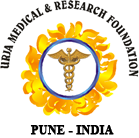In today’s fast-paced and demanding world, many individuals are experiencing a concerning rise in increased potency. This phenomenon, characterized by heightened strength and intensity, can have a significant impact on one’s physical and emotional well-being. Understanding the symptoms, causes, and diagnosis of increased potency is crucial for effective treatment and management. In this article, we will explore the various aspects of this condition, including its symptoms and potential causes. We will also delve into the different approaches to treatment and discuss lifestyle factors that can help individuals effectively manage increased potency. Whether you are personally affected or seeking knowledge on this topic, this article will provide valuable insights into understanding and addressing increased potency.
1. Understanding Increased Potency: Symptoms, Causes, and Diagnosis
Understanding Increased Potency: Symptoms, Causes, and Diagnosis
Potency issues can significantly impact a person’s sexual health and overall well-being. Increased potency, commonly known as erectile dysfunction or impotence, refers to the consistent inability to achieve or maintain an erection sufficient for sexual intercourse. While it is normal to occasionally experience difficulties in achieving or sustaining an erection, persistent problems can be indicative of an underlying condition.
Symptoms of increased potency are primarily characterized by the inability to achieve an erection or maintain it long enough for satisfactory sexual activity. Other symptoms may include reduced sexual desire, difficulty in achieving orgasm, and a decrease in the firmness of erections. It is essential to note that occasional incidents of potency issues do not necessarily indicate a chronic problem. However, if the symptoms persist for months or occur regularly, it is advisable to seek medical attention.
The causes of increased potency can be both physical and psychological. Physical factors that contribute to potency issues include cardiovascular diseases, high blood pressure, diabetes, obesity, hormonal imbalances, and neurological disorders. Psychological causes can range from stress, anxiety, depression, relationship problems, performance anxiety, to past traumatic experiences.
Diagnosing increased potency involves a comprehensive evaluation of a person’s medical history, physical examination, and sometimes, additional tests. During the evaluation, the healthcare provider will inquire about the frequency and severity of symptoms, any underlying medical conditions, medications being taken, and lifestyle habits such as smoking or alcohol consumption. A physical examination may include checking blood pressure, examining the genitals, and
2. Effective Treatment Approaches for Increased Potency
When it comes to treating increased potency, several effective approaches are available. The treatment options range from medication to lifestyle changes, each designed to address the underlying causes and symptoms of this condition.
One of the most common treatment approaches for increased potency is the use of medication. Medications such as Viagra, Cialis, and Levitra are often prescribed to help men achieve and maintain an erection. These medications work by increasing blood flow to the penis, which in turn helps to improve sexual performance. However, it is important to note that these medications should only be taken under the guidance of a healthcare professional, as they can have side effects and may not be suitable for everyone.
In addition to medication, psychological counseling can also be an effective approach for treating increased potency. Many cases of potency issues are caused by psychological factors such as stress, anxiety, or depression. By addressing these underlying issues through therapy or counseling, individuals can often see improvements in their sexual performance. Techniques such as cognitive-behavioral therapy (CBT) or sex therapy can help individuals overcome mental barriers and build confidence in their sexual abilities.
Another important aspect of treating increased potency is making lifestyle changes. Adopting a healthy lifestyle can have a significant impact on sexual function. Regular exercise, maintaining a healthy weight, and managing stress levels can all contribute to improved potency. Additionally, avoiding excessive alcohol consumption and quitting smoking can also have positive effects on sexual health.
Furthermore, alternative therapies such as acupuncture, herbal remedies, and dietary supplements have gained popularity for their potential benefits in treating increased
3. Lifestyle Factors and Strategies for Managing Increased Potency
Lifestyle Factors and Strategies for Managing Increased Potency
When it comes to managing increased potency, lifestyle factors play a crucial role. Making certain changes in your daily habits can not only help in the treatment of this condition but also prevent its occurrence. Here are some lifestyle factors and strategies that you can adopt to manage increased potency effectively:
1. Regular Exercise: Engaging in regular physical activity is essential for managing increased potency. Exercise helps in improving blood circulation throughout the body, including the genital area. It also aids in reducing stress and promoting overall well-being. Incorporate at least 30 minutes of moderate-intensity exercise, such as brisk walking, jogging, or cycling, into your daily routine.
2. Healthy Diet: A balanced and nutritious diet is vital for maintaining optimal sexual health. Include foods that are rich in vitamins, minerals, and antioxidants. Opt for a diet that is high in fruits, vegetables, whole grains, lean proteins, and healthy fats. Avoid excessive consumption of processed foods, sugary snacks, and alcohol, as they can have a negative impact on sexual function.
3. Stress Management: Chronic stress can significantly affect sexual performance and potency. Incorporate stress management techniques into your daily routine to reduce its impact. Practice relaxation techniques like deep breathing exercises, meditation, or yoga. Engage in activities that help you unwind and relax, such as listening to music, taking a warm bath, or spending time in nature.
4. Adequate Sleep: Lack of sleep can lead to fatigue, decreased libido, and
